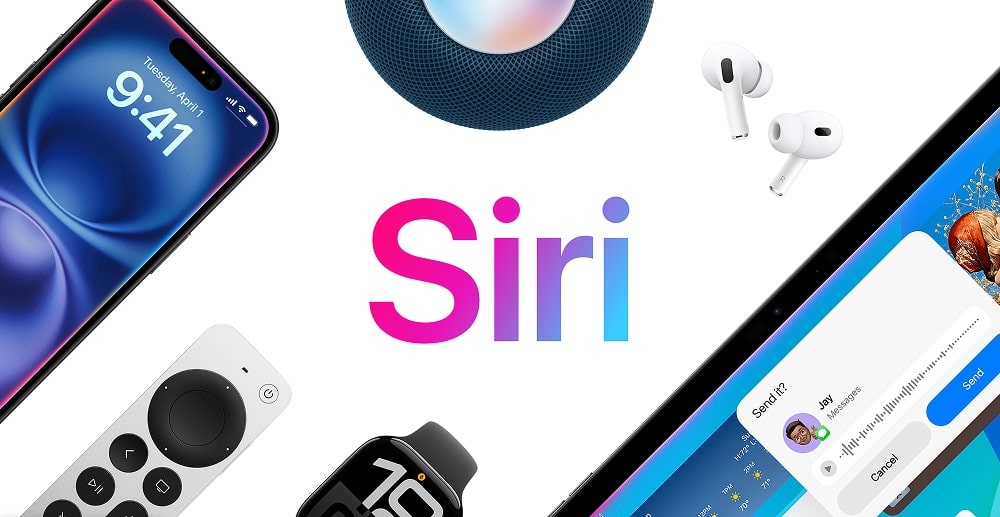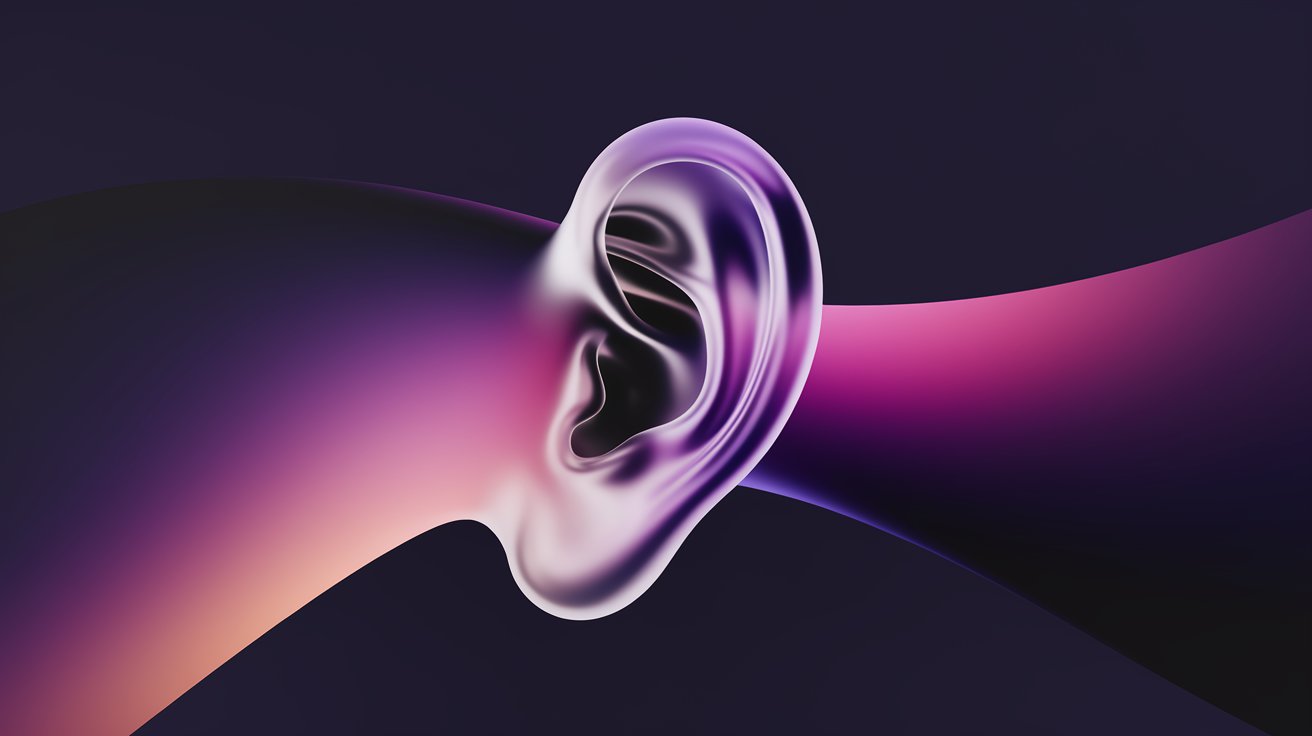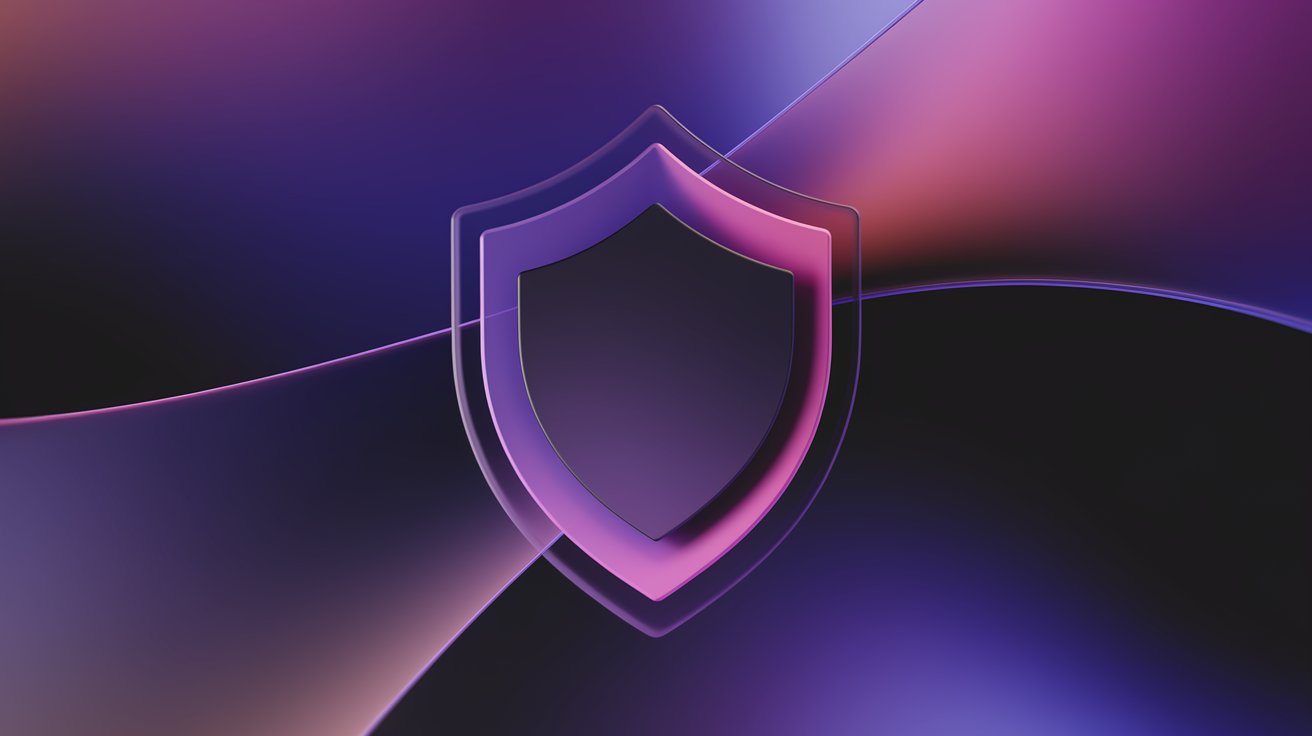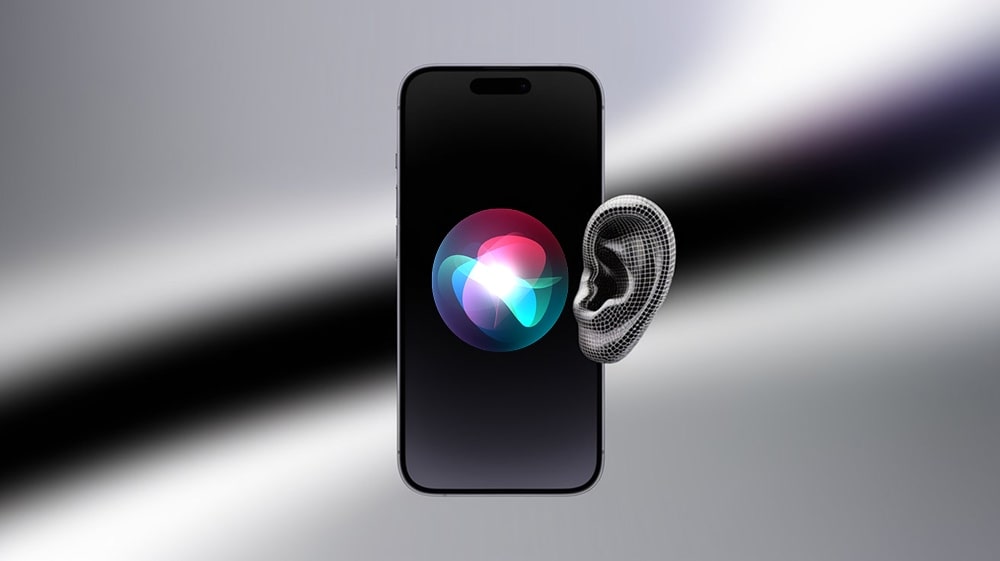When Your Devices Listen Too Closely
We've all shared private details in what we believed to be the absolute privacy of our homes – a doctor's consultation, a heartfelt conversation with a loved one, a confidential business call. It's pretty shocking to think that your iPhone might have recorded these sensitive chats, and that someone, maybe even thousands of miles away, could've listened in.
And this isn’t a Black Mirror episode. It’s the real-world core of the Apple Siri lawsuit. And it shattered the illusion many people had about Apple being the bastion of digital privacy.
The Apple lawsuit mostly avoided all the front-page media hype. It didn't keep the headlines for weeks on end. Instead, it was more of a subtle, ongoing tremor beneath the surface, unsettling those who looked into what it meant. But for people who really get how important their privacy is – and who also understand the growing risk of tech intrusion – the Apple Siri lawsuit settlement was a clear warning sign.

If you've got an iPhone, a HomePod, or even if you've just said "Hey Siri" without thinking, you might've already been caught up in the huge Apple class action lawsuit.
So, what we're saying is, the info in this article is directly relevant to your digital security. Let's take a step back and see what really happened.
What Is the Apple Siri Lawsuit About?
Here’s the short version: The Apple Siri class action lawsuit accuses Apple of recording users without their consent.
The long version? It’s much more disturbing.
Context of Voice Assistants and Privacy Concerns
Voice assistants like Apple's Siri offer convenience but create significant privacy risks due to their "always-on" listening design. This constant readiness, necessary for activation, creates vulnerabilities if audio data is misused or recorded without consent.
Core Allegations
Multiple users reported instances where Siri was activated by accident, recording snippets of private conversations, sometimes even sexual or highly sensitive discussions. These recordings, according to the Apple Siri lawsuit claim, were not only saved but also reviewed by real people.
Yes, actual contractors were paid to listen in. Apple claimed it was for “quality control” and improving Siri’s accuracy. But the problem? Users never explicitly consented to this kind of surveillance.
This led to a class action legal challenge. The Apple lawsuit Siri controversy highlighted how even a company that markets itself as privacy-first can quietly bend the rules.
The accusations were straightforward:
- Siri was listening when it shouldn’t.
- Apple stored audio data without user knowledge.
- Human reviewers accessed recordings without clear consent.
Apple Lawsuit Timeline
- The Class Period Begins (Sep 17, 2014): This date aligns with a major iOS update introducing hands-free "Hey Siri" functionality. Unintentional recordings likely began here.
- Early Whispers (2019): Reports emerged that Apple contractors were reviewing Siri recordings, many of which were captured by mistake. A whistleblower inside Apple told The Guardian that up to 1,000 recordings a day were being analyzed per reviewer.
- Public Backlash: Users were shocked. Apple paused the program and issued a vague apology, but it wasn’t enough.
- Legal Firestorm: A Siri lawsuit was filed. Then came the Apple class action lawsuit. Plaintiffs argued they never gave permission for Apple, or its contractors, to listen to their private lives.
- Apple’s Response: Apple introduced a software update letting users opt out of Siri analytics. But that was after the damage had been done.
- The Class Period Ends (Dec 31, 2024): If you were affected by an unintended Siri activation before this date, you're eligible to file an Apple lawsuit claim.
- Apple Agrees to a $95 Million Payout (Jan 2025 (or earlier in 2024)): The Apple Siri lawsuit settlement is designed to quietly put the matter to rest, without Apple admitting any wrongdoing.
- Claim Deadline (Jul 2, 2025): Deadline for eligible consumers to file a claim and get compensation under the Apple settlement Siri lawsuit.
- Final Approval (Aug 22, 2025): Final approval hearing for the Apple Siri class action lawsuit. Some sources had cited August 1, but official channels confirm August 22.
Apple tried to fix the issue quietly. But the Siri lawsuit dragged it into the open. It’s not just about money, it’s about how even the most celebrated tech brands misuse your data without asking.
And here’s the main question: If it happened with Siri, what else is happening behind the scenes?
Who Was Affected, and Could It Be You?

If you ever said "Hey Siri" this concerns you.
The Apple Siri class action lawsuit isn’t limited to power users or technophiles. It affects everyday people. Anyone who owned an iPhone, iPad, Apple Watch, AirPods, or a HomePod between September 17, 2014, and December 31, 2024 could be part of the Apple lawsuit Siri claim.
Here’s who’s included:
- iPhone users: Especially those using “Hey Siri” voice activation.
- HomePod owners: A device constantly listening for its wake word in the background.
- AirPods and Apple Watch users: These also support Siri and were part of the data sweep.
- Anyone whose voice was accidentally recorded: Even if it wasn’t your device. If your voice triggered a nearby Siri-enabled product, your privacy could be still compromised.
It’s not just about you interacting with Siri. It’s about Siri reacting to you without permission.
So yes, it could absolutely be you.
Inside the Apple Siri Settlement: Key Facts
Apple agreed to settle for $95 million. But don’t let the dollar signs fool you.
Here’s the breakdown of what the Apple Siri lawsuit settlement actually means:
- Eligibility: Anyone in the U.S. who owned a Siri-enabled device during the class period (2014–2024) may file an Apple lawsuit claim.
- Compensation: Eligible claimants can receive up to $20 per Siri-enabled device, with a maximum of five devices ($100 total) per person. The final amount depends on valid claims and deductions. Only an estimated 3% to 5% of eligible consumers may file claims.
- Deadline: The claim deadline is July 2, 2025. Claims can be submitted online or by mail. The final approval hearing is August 22, 2025, with payments commencing after all approvals and appeals.
- No admission of guilt: As usual, the Apple Siri class action lawsuit was settled with a denial of wrongdoing.
That last point is critical. Apple didn’t say, “We did this.” They just paid to avoid going to trial. A classic Big Tech strategy.
Apple's Evolving Privacy Stance and Record
Apple has consistently branded itself on a strong commitment to user privacy, calling it a "fundamental human right." It claims not to sell Siri data or create marketing profiles from user interactions.
Response to the Siri Controversy
Following initial reports and the lawsuit, Apple revised Siri's data processing in 2019, enhancing user controls and allowing opt-out from human review of recordings. Apple reiterated that Siri processes requests with minimal data collection and only retains audio with explicit user opt-in for improvement.
Recent Controversies Impacting Apple's Privacy Image (e.g., iCloud Encryption in the UK)
A more recent challenge to Apple's privacy record is its decision to disable iCloud encryption for new British users, a direct result of a secret UK Home Office order under the Investigatory Powers Act 2016 ("The Snooper's Charter"). Despite past warnings of withdrawing from the UK, Apple removed encryption for new UK users and publicly disclosed it, drawing criticism from privacy advocates who argue it increases vulnerability to breaches and governmental access.
Analysis of Apple's Actions Versus its Stated Privacy Principles
The Siri settlement and the iCloud encryption decision present a complex picture of Apple's privacy narrative. While resisting a global backdoor, partial compliance in the UK sets a dangerous precedent. Critics also point to Apple's history of caving to authoritarian demands, like hosting user data on state-sponsored servers in China with different encryption, which makes it hard to believe that they really care about privacy. This suggests Apple's privacy stance is subject to geopolitical and market pressures.
Why This Lawsuit Matters for Everyone, Not Just Apple Users
You might be thinking: "If I don’t even use Siri, I’m good."
You’re not.
The Apple Siri lawsuit shows how easily voice assistants, and their makers, can cross the line. Apple was supposed to be the privacy leader. However, this case completely shattered that narrative. The Apple Siri class action lawsuit showed that even a company that's so focused on its privacy reputation can still let third-party contractors listen in.
People's privacy is becoming less and less private. Features that were supposed to make life easier are now being used to collect data. Sometimes it's for training AI. Sometimes it's just surveillance, but it's made to be easy to use.
The Apple settlement Siri lawsuit isn't just a legal story, it's a signal flare. What you say on your devices can, and sometimes will, be used against you.
How to Protect Yourself in a World of Constant Surveillance

You shouldn't be a legal genius or a rocket scientist to stay private in the digital age.
But here we are, surrounded by microphones, sensors, trackers and all sorts of legal stuff. The Apple Siri lawsuit was a loud reminder: even your own devices might be spying on you. So, how can you protect yourself when it feels like the walls are listening?
Here are practical, real-world steps you can take today:
1. Disable "Apple Intelligence Siri" (or any always-on assistant)
- On iPhone: Go to Settings > Talk & Type to Siri, then choose “Off”.
- It may cost you a bit of convenience. But it buys back a lot of peace of mind.
2. Review App Permissions
- Look at which apps can access your mic, camera, contacts, and location.
- Ask yourself: Does a weather app really need my microphone?
3. Use a Privacy-First Browser and Search Engine
- Ditch Chrome. Try Brave or Firefox.
- Replace Google with DuckDuckGo or Startpage.
4. Use Strong, Unique Passwords and Multi-Factor Authentication (MFA)
- A single breach compromises everything. Use a password manager (you can even use Passwords app on iPhone) to generate and store complex, unique passwords for every service.
- Enable MFA wherever it's offered.
5. Always Update Your Software
- Software vulnerabilities are constantly discovered, and tech companies release updates to plug these holes. Delaying updates leaves your devices exposed, a wide-open target for malicious actors.
6. Consider a VPN (Virtual Private Network)
- A VPN encrypts your internet connection and masks your IP address, making it much harder for third parties (like your ISP, governments, or even hackers on public Wi-Fi) to monitor your online activity.
7. Regularly Review Privacy Settings on All Platforms
- Social media, search engines, cloud storage – every service has privacy settings. Take the time to go through them.
- Limit data sharing, restrict ad personalization, and understand what information is publicly visible.
8. Encrypt Your Email
- Your email address is the digital key to your entire life. It's the recovery point for forgotten passwords, the delivery mechanism for sensitive documents, and the primary point of contact for countless services.
- Encrypting your email with a service that offers true end-to-end encryption isn't just a recommendation; it's a fundamental security baseline for protecting your privacy
Can You Trust Big Tech with Your Data?
The short answer? Not really.
The Apple lawsuit Siri scandal isn’t the first time Apple made privacy headlines. Remember when Apple weakened iCloud encryption in the UK to comply with government demands (mentioned above)? Or when they proposed scanning personal photos on users’ devices for “CSAM content detection” – a move that shocked privacy advocates worldwide?
These aren’t isolated cases. This is a pattern. A pattern that goes far beyond just Apple.
- Google tracks your every search, every step, every ad click.
- Amazon’s Alexa devices have had their fair share of listening controversies.
- Facebook… well, that one doesn’t even need explanation.
The Apple Siri class action lawsuit is just the latest in a long line of violations that prove one thing: Big Tech companies are not privacy companies. Their business model depends on your data.
So ask yourself:
- Who profits from knowing more about you than your family does?
- Who benefits when you leave your inbox wide open to machine scanning?
These lawsuits aren’t just stories. They’re signs.
Your Inbox, Your Rules: Switch to Atomic Mail Today
If the Apple Siri lawsuit made one thing clear, it’s this: You can’t outsource your privacy. You have to take it back.
And it starts with your inbox.
Why Email First?
- Your email is the digital key to your life: passwords, banking alerts, medical files, cloud access.
- It’s the first place hackers go. It’s the last place Big Tech should be.
Why Atomic Mail?
- End-to-end encryption by default. Seamless and strong.
- Zero-access encryption: not even we can read your emails.
- No ads. No profiling. No surveillance.
- Free alias addresses for anonymous communication.
- Seed-phrase account recovery – no phone number or ID required.
- Anonymous sign up: create your account without providing any personal information.
Atomic Mail is built for people who are done being data sources.
- Simple for beginners. Powerful for experts.
- Works on desktop and mobile.
- Trusted by users who read privacy policies, and those who don’t, but should.
➡️ Sign up for Atomic Mail – and close the surveillance loophole for good.



